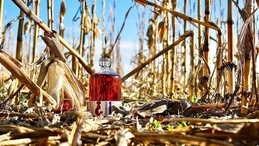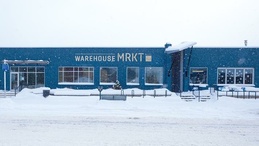What About the Girls?
Guest Opinion
By Isiah Smith, Jr. | Aug. 16, 2025

*Sensitive Content: This column includes a discussion of sexual assault.
In a hundred years, I shall never forget that 13-year-old child’s face, how her small, undeveloped body shrank as if disappearing into herself. She was 13 and a legally mandated participant in an adolescent group therapy session I led, along with my co-therapist, Angela, when I worked at South Dade Mental Health in Homestead, Florida. Little did we know the horrible trauma we were to witness and, in a sense, become part of.
The first group therapy session provided each child with the chance to explain why they were placed in the group.
“Mary [not her real name], please tell us why you are here. Feel free to share as much or as little as you’re comfortable with at this moment.”
It was crucial first to establish a safe space where children felt comfortable sharing their most intimate secrets and feelings. This process rarely happened all at once, and when it did, it could often be intense. Not much was expected during the initial session.
But this time, it was different, and what happened next has stayed with me for over 50 years.
Mary stepped back further into herself, her face lowered and shoulders drooping. She licked her lips, then rubbed them roughly, as if trying to wipe away a stubborn stain only she could see. “I’m here because my father used to make me [perform oral sex] on him and his friends.”
What kind of man does this?
Angela gasped, covered her mouth with her hand, and a look of horror flashed across her face. Her legs started to twitch. South Florida felt heavy. My throat began to close, and my breathing became shallow and laborious. The other kids fidgeted uneasily in their chairs, their faces flushing red, showing signs of fear. I couldn’t speak, but Mary could, and she did.
“My father would never have sex with me, and he made his friends promise they wouldn’t either. But one day, when he was not at home, one of his friends came over and had sex with me. I got pregnant, and Dade County Children and Family Services took me from my house and sent me here to see you.”
Finally, I spoke. “Do you know what happened to your father and his friends?” I asked.
Mary shook her head and withdrew into her own world again. All this time, Angela remained silent, so overwhelmed that she couldn’t even speak. We faced a long road ahead.
This is the situation that convinced me to go to law school, because I knew from personal experience how hard it was to make Mary see that nothing she went through was her fault, or that what those terrible men had done to her was their sickness. To get her to stop asking, “What did I do to make them think they should have done these things to me? What’s wrong with me?”
I’ve been thinking a lot about Mary over the past few days. Unless you’ve been on a silent retreat somewhere in the Himalayas, you’ve heard more than you want to about Jeffrey Epstein and the “leader of the free world.” And if you’re like me, you’ve been banging your head against the wall, asking, “What about the girls? Why isn’t anyone talking about the victims and their inevitable suffering?”
The monstrous men get all the attention, while the victims become the forgotten players in this morality play.
Data collected by The Washington Coalition of Sexual Assault Programs (WCSAP) shows that many of us suffer silently from the effects of childhood sexual abuse. Victims often go through five stages, similar to Kubler-Ross’ On Death and Dying, which are denial, anger, bargaining, depression, and acceptance. These stages almost always impact those grieving their sexual assault. The process begins with denial, which is usually the victim’s initial response to the unspeakable crime.
If an individual is sexually assaulted, they may experience somatic (body) complaints, eating disturbances, anxiety, difficulty concentrating, and physical symptoms related to the areas of their body affected by the assault. Survivors might become very expressive (anger, sadness), disoriented (disbelief, denial), or controlled and calm.
One thing I can tell you for sure, from personal experience and half a century of denial: the painful memory of the assault and abuse worsens when the abuser faces no consequences or when no one believes your account of what happened because the molester is your protector.
Everyone should protect the young, the weak, and the helpless instead of taking advantage of them. Epstein and his depraved accomplices failed the test of responsible adulthood and basic humanity.
Shame and dishonor upon their wretched souls.
Now, what about the girls? Why is all the attention focused on the perverted adults instead of the children? What about the children?
Isiah Smith, Jr. is a retired government attorney.
Trending

Farm to Glass with Ethanology
When Elk Rapids distillery Ethanology committed to locally-sourced ingredients for their products, it seemed like they&rsquo… Read More >>
MRKT HLDY SHPPNG, aka Warehouse MRKT Holiday Shopping!
Shop the latest from local makers and vendors at the Holiday MRKT Share at Warehouse MRKT in TC, Saturday, Dec. 20, from 10a… Read More >>
Men and Ugly Sweaters
Those two things don’t always go together, but on Dec. 19, you’ll see both out and about in Petoskey and Harbor … Read More >>


